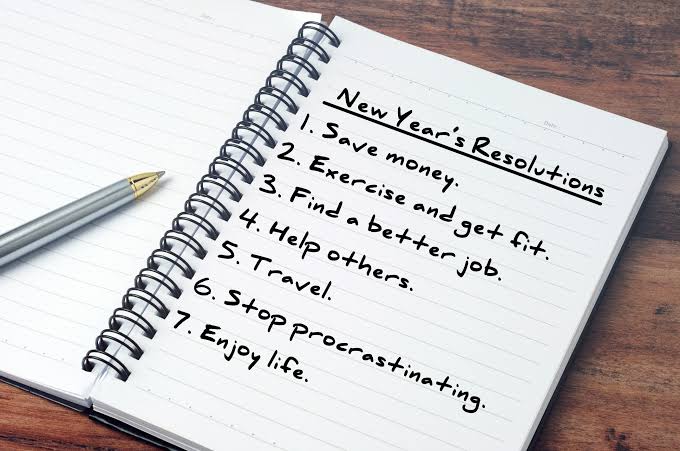Setting goals or resolutions at the beginning of a new year has become a tradition globally. It has a pleasant ring to it – starting off a new year with a set of new plans, new goals and new missions. Frankly, this habit is a healthy one for self-development.
Unfortunately, as fast as resolutions are made, it’s common for people to give up and drop these resolutions. Factors such as; fear, fatigue, unclear vision, and indiscipline contribute to unrealized resolutions.
Therefore, over the years, fewer people are keen on taking up new year resolutions since popular experience has taught people that individuals will most likely give up on their resolutions.
- Set Small Goals
It’s easy to get excited with the prospect of setting a new goal that sometimes one gets carried away. However, as much as possible, avoid setting elaborate goals which mostly become overwhelming in the short-run.
By setting simpler, and smaller goals, they’re more achievable. For instance, to meet your exercise goals, instead of setting a goal for four times a week, begin with just one hour on one day of the week and remain consistent with this routine until it becomes a habit. Afterwards, you can extend your exercise days by a second day weekly.
Remember, with goals, smaller and consistent is better than bigger and inconsistent.
- Have An Accountability Partner
An accountability partner is someone who knows your goals, and coaches by periodically checking-up on you to make sure you’re on course with achieving your goals and commitments. For the purpose of this article, we’ll refer to the term Accountability Partner with AP for short.
An AP could be your spouse, partner, friend, parent, sibling, colleague, mentor or course mate. By including an AP to your goal plan, you’re sure that even on the days you’re feeling unmotivated, they’ll be there to motivate you.
Choose an AP who is dependable, focused, and honest. This way, they’ll be able to access your progress on your goals honestly, and without being partial.
To make this fun, you can co-AP with an AP which simply means that while you’re accountable to your AP, they too are accountable to you.
- Remain Optimistic
No goal is easy to achieve. Especially a big goal. Some days will be tough and you may feel down, and even question your decision to have that goal, but don’t.
Remain positive and believe in your dreams. Remember that the first step in achieving a dream is first achieving that goal in your mind. Also, surround yourself with people who believe in your goals. While getting rid of those who do not. Follow up on other people who share the same dream as you and see if collaborating or speaking with them is useful.
- Be Realistic
An important factor to note when delegating goals for the new year is to be realistic. Research if possible the duration it’ll take to achieve a goal you’re after. Afterwards, make your plans accordingly.
For instance, if your goal is to get a Master’s degree, you cannot expect to study a 2-year Master’s Degree program for only 6 months. Hence, your plans must revolve around two years or two and a half years.
- Have A Plan
Some people say that the difference between a dream and a goal is a plan. This is quite apt. Putting together a plan gives you milestones to work with and additionally, makes it easier to track your progress on a goal.
Some apps offer planning calendars where you can write down a timeline for your goals, measures to achieve these goals and deliverables.
Note that you cannot scale up your goal without planning. And not just any plan, but a realistic and achievable one.
One question for you before you close this tab; are you still committed to your New Year Resolutions and Goals?
Copyright 2025 TheCable. All rights reserved. This material, and other digital content on this website, may not be reproduced, published, broadcast, rewritten or redistributed in whole or in part without prior express written permission from TheCable.
Follow us on twitter @Thecablestyle

